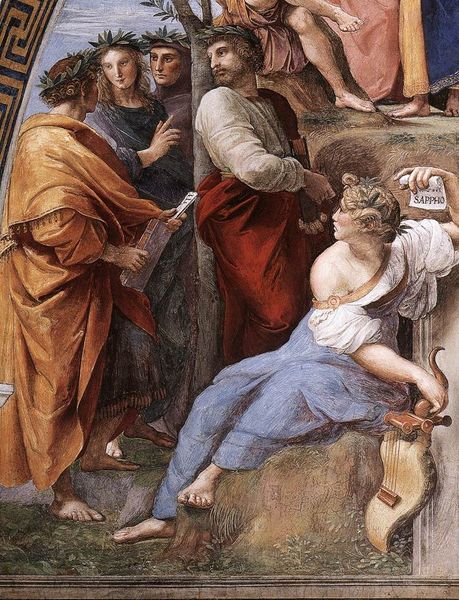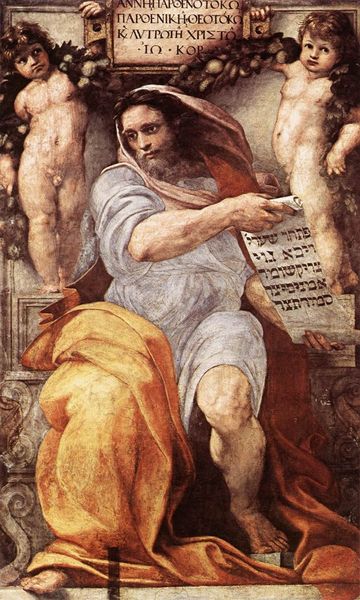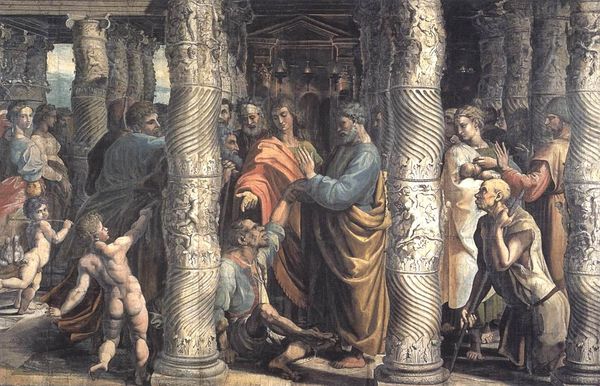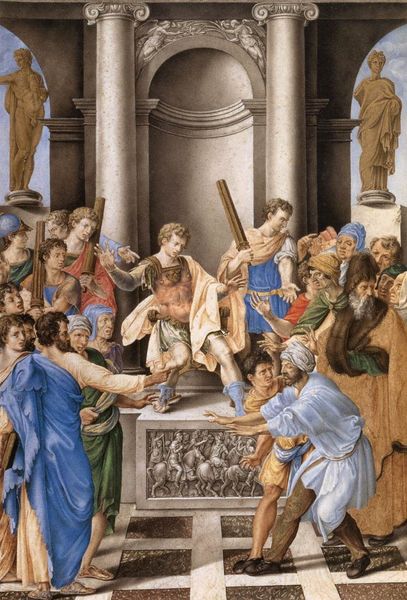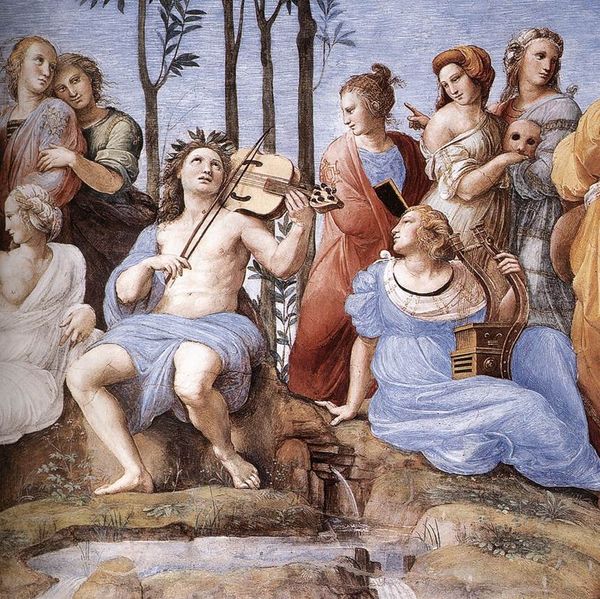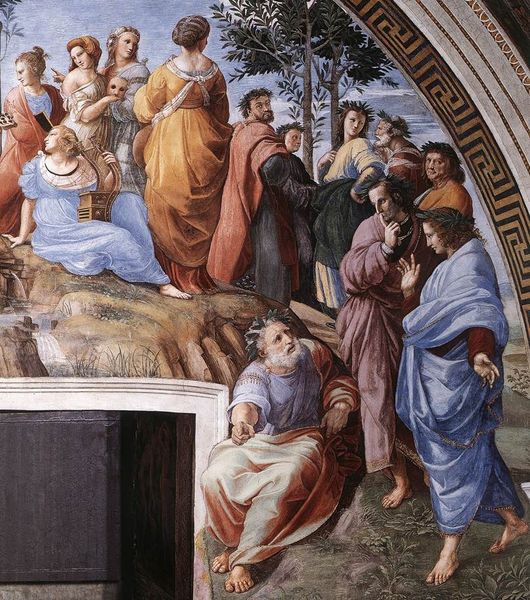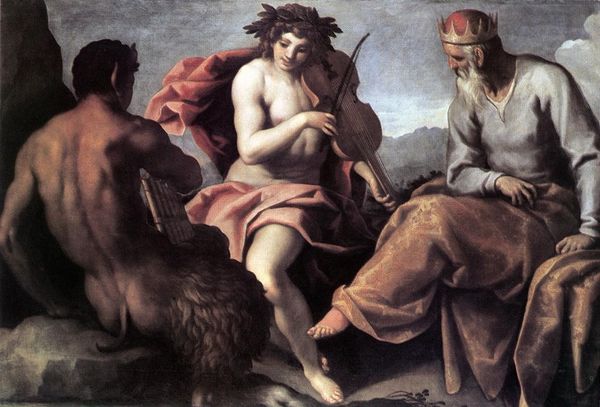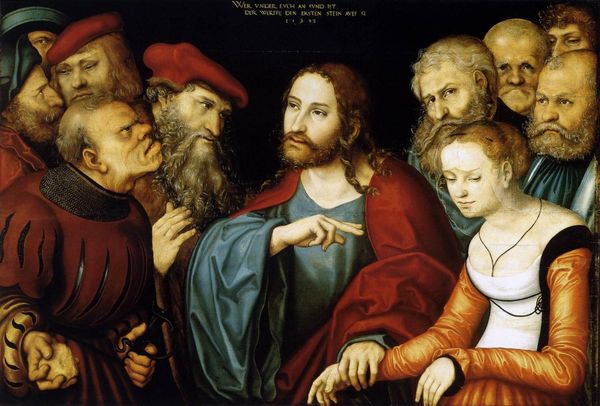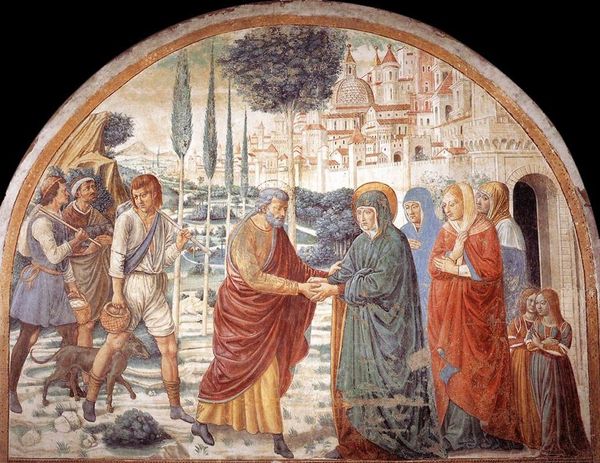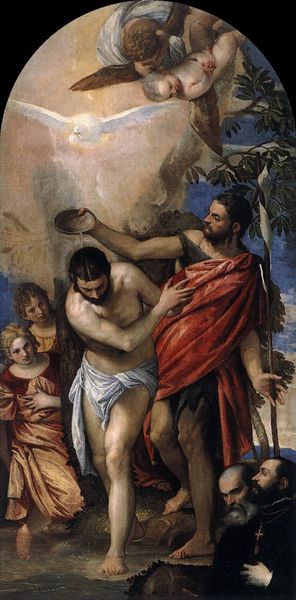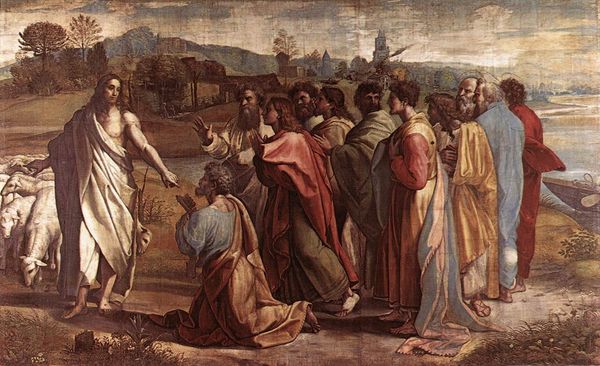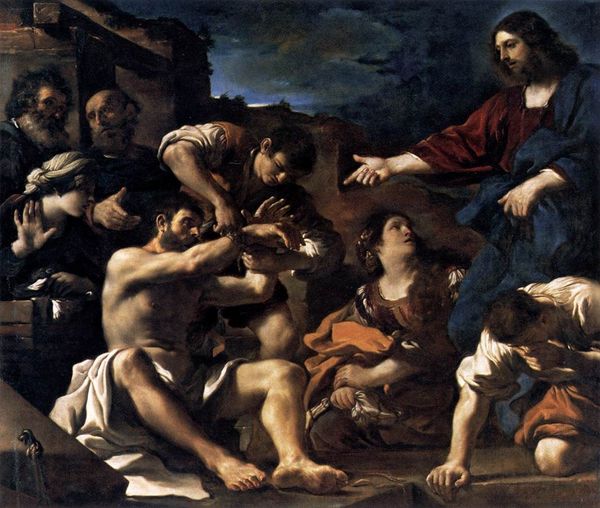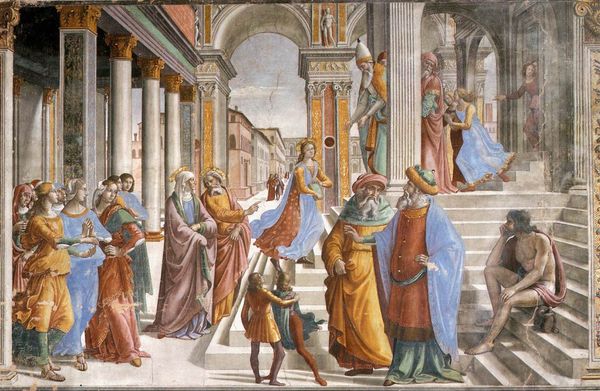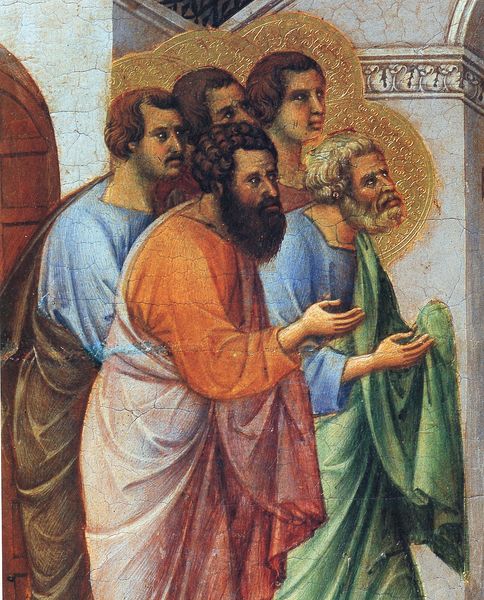The Parnassus, detail of Homer, Dante and Virgil, in the Stanze della Segnatura 1511
🔒Audio guide available with collection purchase
painting, fresco
#
portrait
#
high-renaissance
#
allegory
#
narrative-art
#
painting
#
classical-realism
#
fresco
#
oil painting
#
classicism
#
group-portraits
#
mythology
#
history-painting
#
academic-art
#
italian-renaissance
#
portrait art
Copyright: Public domain
Comments
No comments
Be the first to comment and join the conversation on the ultimate creative platform.

